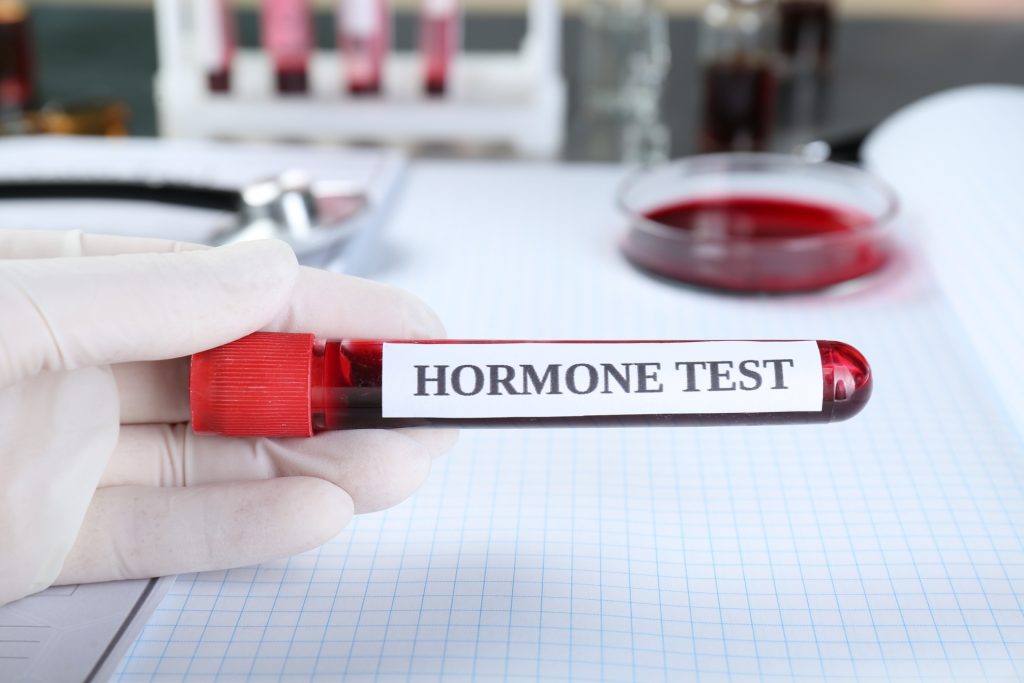Hormonal cancers, like breast and prostate cancer, are significantly influenced by the body’s hormone levels. These types of cancer often thrive on hormones such as estrogen and testosterone, which can encourage the growth of cancer cells. Managing these hormone levels is a key strategy in treating such cancers, highlighting the importance of aromatase inhibitors in this process.
Natural Alternatives: ABM Mushrooms and Hormone Regulation
The Agaricus Blazei Murrill (ABM) mushroom, commonly known as ABM, has been studied not only as a natural aromatase inhibitor but also for its broader role in hormone regulation and homeostasis. Hormonal balance is crucial for preventing and managing conditions like hormonal cancers, where even slight imbalances can accelerate disease progression.
Understanding Hormonal Cancers
Hormonal cancers depend on hormones to grow. Common examples include breast cancer in women, often driven by estrogen, and prostate cancer in men, fueled by testosterone. These hormones act as growth signals for cancer cells, making their management a pivotal aspect of treatment.
How Aromatase Inhibitors Work
In conventional medicine, Aromatase inhibitors are drugs primarily used to treat breast cancer in postmenopausal women. By blocking aromatase, an enzyme that converts androgens into estrogens, these inhibitors effectively lower estrogen levels, potentially slowing or even halting the growth of hormone-sensitive tumors. They are crucial in various scenarios:
- As adjuvant therapy to increase cure chances after primary treatment.
- In controlling cancer spread in metastatic settings.
- As preventive measures for women at high risk of developing breast cancer.
Common Aromatase Inhibitor Drugs
The most common aromatase inhibitors used in the treatment of hormone-receptor-positive breast cancer, especially in postmenopausal women, include:
- Anastrozole (Arimidex) – Typically used as an adjuvant treatment for early-stage breast cancer or for metastatic breast cancer.
- Letrozole (Femara) – Can be used as first-line therapy for advanced breast cancer or as adjuvant therapy following surgery.
- Exemestane (Aromasin) – Often administered after two to three years of tamoxifen, to complete a total of five or more years of hormonal therapy.
ABM Mushrooms and Hormone Regulation
ABM mushrooms are known for their immune-enhancing and anticancer properties and are being researched for their role as natural sources of aromatase inhibitors. Compounds like polysaccharides and ergosterol derivatives in ABM may inhibit aromatase, providing a complementary approach to traditional drugs. Their potential effects include:
- Aromatase Inhibition: Natural compounds in ABM mushrooms can reduce aromatase activity, lowering estrogen levels and potentially mitigating estrogen-dependent cancer risks.
- Adaptogenic Effects: ABM mushrooms help the body resist stress and maintain balance by supporting adrenal glands involved in hormone production.
- Immune Modulation: By boosting immune health, ABM mushrooms may indirectly support the endocrine system, promoting a balanced hormonal environment.
The Importance of Homeostasis
Homeostasis is the body’s ability to maintain a stable internal state despite external fluctuations. Hormones play a crucial role in regulating everything from growth and metabolism to mood and immune responses. Imbalances can lead to significant health issues, including cancers. ABM mushrooms, by supporting hormone balance, contribute to overall health and disease resilience.
In conclusion, ABM mushrooms hold promising potential for regulating hormone levels and supporting overall hormonal health, potentially serving as a valuable addition to conventional treatment strategies.
Bibliography
- Yu, C.H., Kan, S.F., Shu, C.H., Lu, T.J., Sun-Hwang, L., & Wang, P.S. (2009). Inhibitory mechanisms of Agaricus blazei Murill on the growth of prostate cancer in vitro and in vivo. Journal of Nutritional Biochemistry, 20(10), 753-764. https://doi.org/10.1016/j.jnutbio.2008.07.004
- Kobayashi, H., Yoshida, R., Kanada, Y., Fukuda, Y., Yagyu, T., Inagaki, K., Kondo, T., Kurita, N., Suzuki, M., Kanayama, N., & Terao, T. (2005). Suppressing effects of daily oral supplementation of beta-glucan extracted from Agaricus blazei Murill on spontaneous and peritoneal disseminated metastasis in mouse model. Journal of Cancer Research and Clinical Oncology, 131(8), 527-538. https://pubmed.ncbi.nim.nih.gov/15883813/ PMID: 15883813.
- Mizuno, T. (2002). Medicinal Properties and Clinical Effects of Culinary-Medicinal Mushroom Agaricus blazei Murrill (Agaricomycetideae) (Review). International Journal of Medicinal Mushrooms, 4(4).
